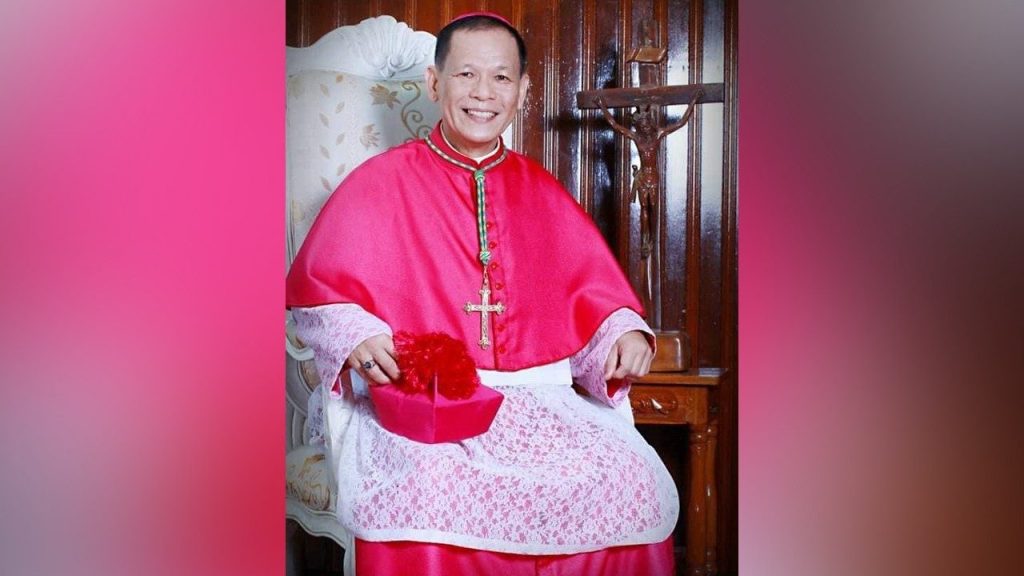
Pope Francis wanted “to communicate to people in the peripheries,” said a Filipino prelate days after he was named by the pontiff to the College of Cardinals.
Cardinal-designate Jose Advincula of Capiz told Vatican News in an interview this week that the pope wants to show that people in far-flung places “are being attended to by the Church.”
On October 25, Pope Francis announced 13 new cardinals, including Archbishop Advincula, who will formally receive their appointments at a consistory in the Vatican on November 28.
Archbishop Advincula, 68, has been bishop of San Carlos for 10 years until his transfer to Capiz in 2011.
“I think it is a feeling of resignation,” he told Vatican News about his new post. “Although I’m a bit happy because of the honor, I’m also afraid because of the responsibilities.”
The new cardinal said he has worked in three rural dioceses as a priest and bishop.
“Perhaps the Holy Father really wanted to communicate to the people in the peripheries that they too are being attended to by the Church,” he said when asked for his reaction to his appointment.
He added that a priest friend noted that it might be because he had been establishing mission stations and mission schools in far-flung places in San Carlos and in Capiz.
“I always thought that the Church has to be closer to the people, especially those that are in the peripheries,” said Archbishop Advincula.
“Tthis might be a way the Holy Father wants to convey to the people the presence of the Church in the peripheries,” he added.
The archbishop said he feels the Church in the country also needs to ensure that the human dignity and human rights of the people in the Philippines are respected.
He said such commitment helps in the alleviation of poverty because “poverty is one of the reasons why we have social problems.”
“Education is the way to develop the people so that they can earn more in order to live a more decent life,” he said.
Archbishop Advincula becomes the ninth Filipino cardinal, following Cardinals Orlando Quevedo, Luis Antonio Tagle, Gaudencio Rosales, Jose Sanchez, Ricardo Vidal, Jaime Sin, Julio Rosales, and Rufino Santos.
At 68, he is among nine new cardinals eligible to vote in a conclave. The four others are over the age of 80.
He will also be the fourth among living Filipino cardinals alongside Cardinals Rosales, Quevedo, and Tagle, the prefect of the Vatican’s Congregation for the Evangelization of Peoples.
Cardinals Rosales and Quevedo are over 80 and are no longer eligible to enter a conclave to elect a new pope.
Two of the new cardinals named by the pope work in the Roman Curia: the secretary general of the Synod of Bishops, Maltese Archbishop Mario Grech, and the Italian Archbishop Marcello Semeraro, former bishop of Albano and the new Prefect for the Congregation of the Causes of Saints.
The other new cardinals are Archbishop Antoine Kambanda of Kilgali, Rwanda; Archbishop Wilton Gregory of Washington, United States; Archbishop Celestino Aós Braco of Santiago, Chile; Apostolic Vicar of Brunei Cornelius Sim; and Archbishop Augusto Paolo Lojudice of Siena, Italia.
Pope Francis also appointed the current Guardian of the Franciscan Sacro Convento in Assisi, Archbishop Mauro Gambetti, a cardinal.
The four other cardinals, who are older than 80, are Archbishop Felipe Arizmendi Esquivel of San Cristóbal de Las Casas (Mexico); former Apostolic Nuncio Silvano Tomasi, former permanent observer at the United Nations in Geneva who then worked in the Dicastery for Promoting Integral Human Development; Capuchin Father Raniero Cantalamessa, preacher of the Papal Household; and the pastor of the Shrine of Divine Love, Father Enrico Feroci.
Cardinals wear the color red that indicates their willingness to sacrifice themselves “to the point of shedding their own blood,” in the service of the Successor of Peter.
Archbishop Advincula was born on March 30, 1952, in Dumalag town in the province of Capiz.
He was ordained priest on April 4, 1976 and was named Papal Chaplain of Pope John Paul II on March 19, 1997.
The pope later appointed him bishop of San Carlos on July 25, 2001. He was ordained bishop on Sept. 8, 2001. His installation took place on Sept. 11, 2001.
Pope Benedict XVI appointed him Archbishop of Capiz on Nov. 9, 2011. On Jan. 11, 2012, he was installed prelate of Capiz.
He finished his Philosophy studies at St. Pius X Seminary in Roxas City in 1972 and his Theology at the Central Seminary in the University of Santo Tomas in 1976 where he also studied Canon Law.
Source: Licas Philippines
0 Comments